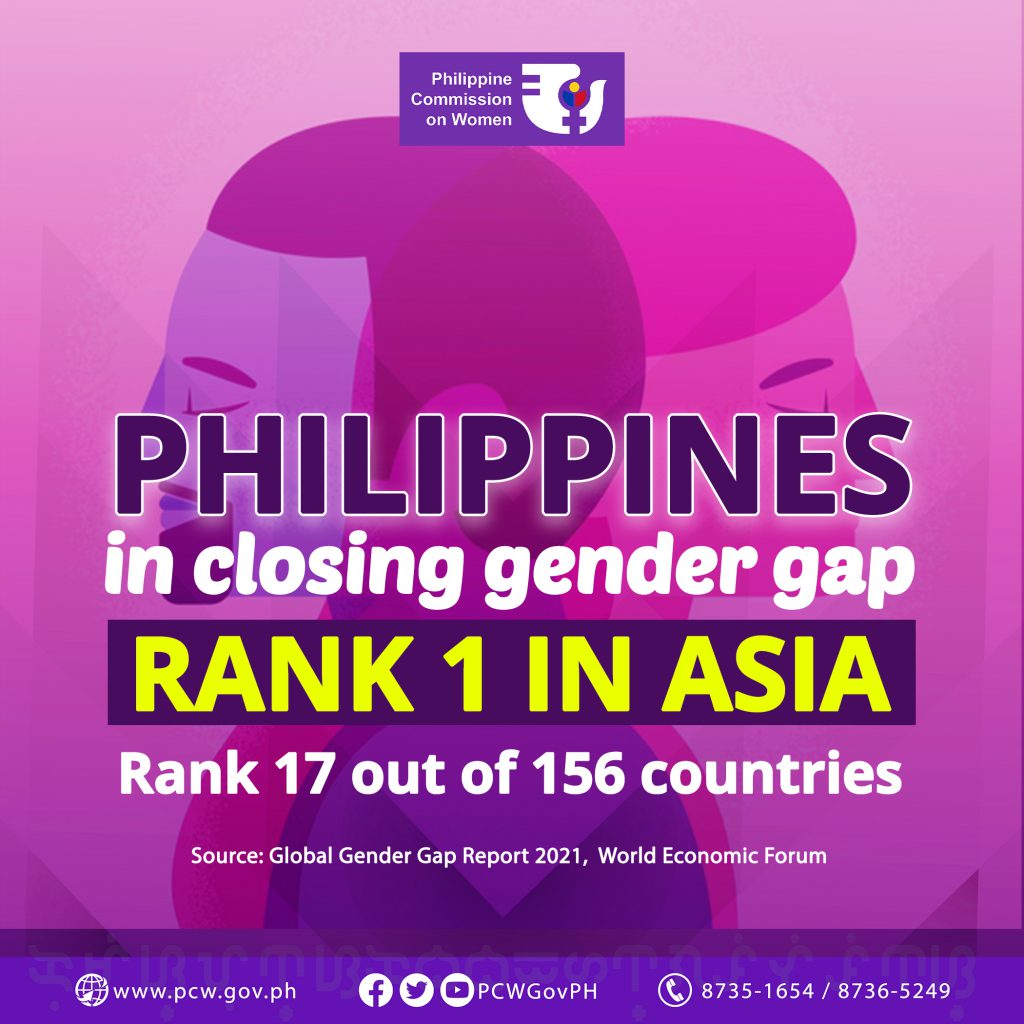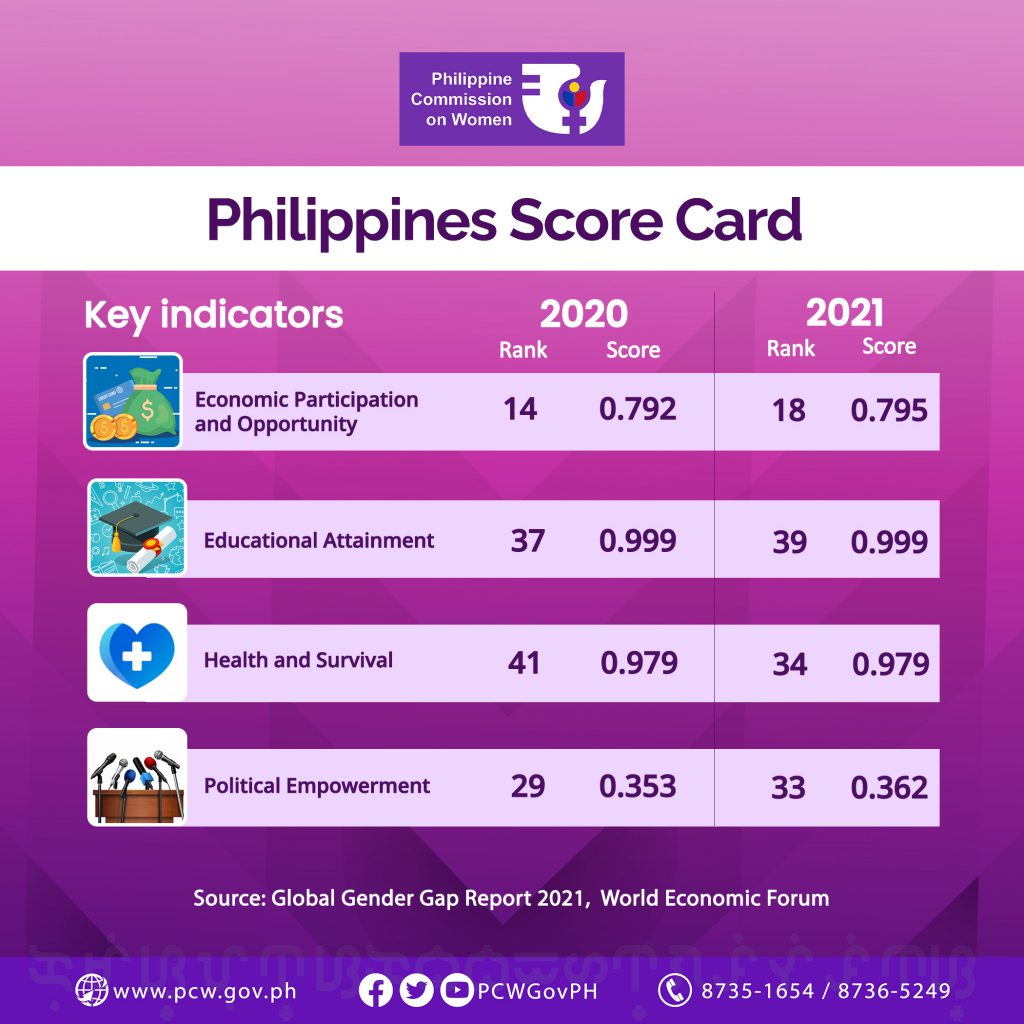Philippines still best performing country in Asia despite slip by one notch in global gender gap ranking

The Philippines drops one place in terms of gender equality but still remains the top performing country in Asia, according to the World Economic Forum’s Global Gender Gap Report 2021.
The country closed 78.4 percent of its overall gender gap to date and ranked 17th out of 156 countries in the report, which is one notch lower compared to its previous standing. However, it is the second best in the whole East Asia and Pacific region, after New Zealand. In addition, it is the only Asian country in the top twenty tier, followed by Lao PDR which placed 36th from its previous 43rd ranking.
The Global Gender Gap Index tracks progress towards closing gaps over time in terms of four key dimensions which are Economic Participation and Opportunity, Educational Attainment, Health and Survival, and Political Empowerment.

According to the 2021 report, the Philippines virtually closed the gaps in Educational Attainment and Health and Survival. Moreover, it is among the 18 countries in the world that have closed at least 79.5% of their Economic Participation and Opportunity gaps.
“This result is due in part to the fact that the Philippines is one of the few countries that has closed at the same time its gender gap in senior roles, and in professional and technical roles,” the report says.
However, it is still lagging in terms of political empowerment, with only 36.2% of the gap being closed so far, recording only a slight improvement from the 35.3% score in the previous report.
“Despite having a woman as head of state for over 15 of the past 50 years, there are still too few seats in the parliament held by women (28%) and even fewer women among ministers (13%),” the report notes.
The report also highlights the need for women to be incentivized to participate more in the broader labor force, because only 49.1% of women are in the job market, corresponding to a gap closure of just 65.3% on this indicator. Another cause of concern is the persisting disparity in income and wage, still needing to close 22% of the wage gap and 31% of the income gap.
PCW Executive Director Atty. Kristine Rosary Yuzon-Chaves recognizes that while the Philippines has made a lot of strides and ranked number one in Asia in terms of gender equality, the Report proves that there is still more work to be done.
“We shall continue to enable and empower women, in an aim to achieve gender equality in this country. Given our score in political empowerment, we must strengthen our campaign to increase women’s political participation and representation, which is included in our Women’s Priority Legislative Agenda. As to economic and labor participation, we will further work with government agencies in engaging women, providing fair and equal wage, establishing viable working conditions, and promoting deserving women to leadership roles, “ Yuzon-Chaves said.
Gender Equality Pushed Back for Another Generation
The Global Gender Gap Report was released a little over one year after COVID-19 was officially declared a pandemic. The gendered impacts of the health crisis manifested a reopening of gaps that were previously closed.
Globally, closing the gender gap has increased by a generation from 99.5 years to 135.6 years. The gap in political empowerment remains the most challenging, with women representing only 26.1% of parliament seats and just 22.6% of ministers worldwide. While progress has been made in education and health, women still face various economic hurdles with workplace challenges, wider gaps in labor force participation due to the pandemic, and overall income disparities. To note, more women are losing jobs at a higher rate, according to the International Labour Organization, at 5% versus 3.9%. Moreover, women’s stress levels and productivity are affected as they carry the burden of unpaid care work, with more people staying in the homes.On a positive note, Iceland remains the world’s most gender-equal country, followed by Finland, Norway, New Zealand and Sweden. Read the full report here.

